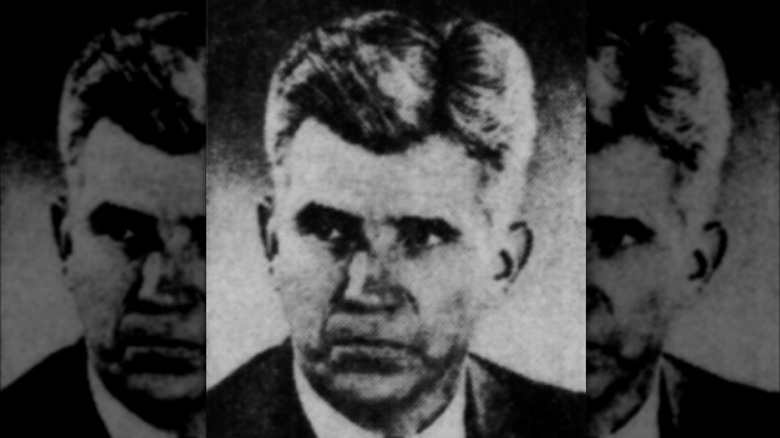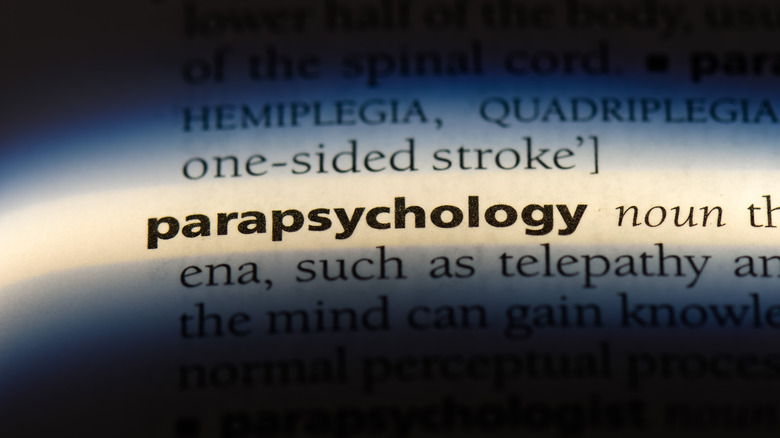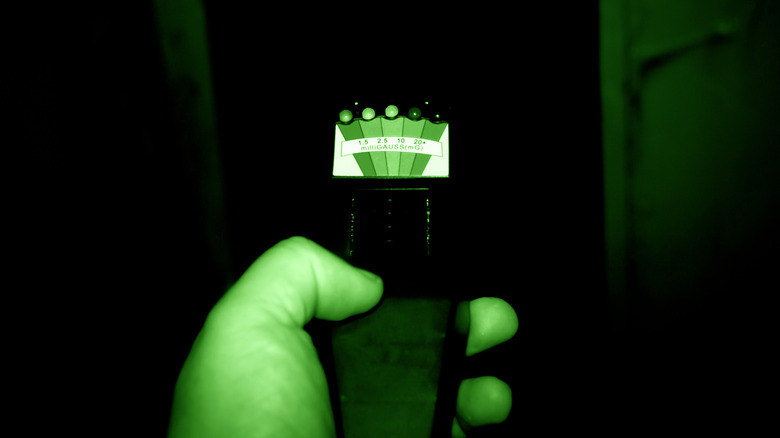The Truth About The Father Of Modern-Day Parapsychology
If you ask around, there are many people who believe they have experienced some form of paranormal encounter in their lifetime. There are even those who spend their lives consumed by the subject. What many don't know, however, is that there's an entire field of researchers who work tirelessly day after day to explore and understand all that there is to know about all things paranormal. We're not talking about ghost hunters either, but rather parapsychologists.
According to Merriam-Webster, parapsychology is "a field of study concerned with the investigation of evidence for paranormal psychological phenomena (such as telepathy, clairvoyance, and psychokinesis)." These days, there are people from all over who are not only driven toward the unknown but choose to study it, sometimes in school. There are several colleges that offer parapsychology as a field of study, but this wasn't always a possibility for students. The road has been long and winding, with many crediting the journey's most significant leaps to one man, Joseph Banks Rhine, the father of modern-day parapsychology.
J.B. Rhine coined the term parapsychology
Joseph Banks Rhine, better known as J.B. Rhine, was born in 1895 in Waterloo, Pennsylvania. While many might not recognize his name, he's had an astounding impact and helped people become comfortable discussing matters dealing with the paranormal. His name is one that is very well-known within the parapsychology research community and can be found in several books either as a source or as an author, like "New Frontiers of the Mind: The Story of the Duke Experiments" and several research textbooks for the Parapsychology Department at Duke University, including "The First Ten Years of the Parapsychology Laboratory."
It was Rhine who coined the term "parapsychology" as a title for the subject of his life's work and passion. Rhine's research into the psychic abilities of the mind was something that had never before been seen or done in such a way, and he often performed with human test subjects as he tried endlessly to learn about the possibilities of psychic phenomena within the human mind. According to New World Encyclopedia, these human test subjects were put into a trance and underwent a series of tests before being removed from the trance and questioned again.
Early years of Rhine's research and career
Though he initially began his career as a botanist, J.B. Rhine was convinced by the head of the Psychology Department at Duke University to move to Durham and conduct various experiments on the subject of postmortem survival. According to Britannica, Rhine coined the term "extrasensory perception," or ESP. Eventually, Rhine branched out from this research and into the study of psychic phenomena. He began his work by heavily focusing on telepathy, clairvoyance, and other various forms of ESP and the capability of not just the human mind but all minds and the possible capabilities within them. Eventually, he and several of his cohorts went on to establish the Parapsychology Laboratory at Duke, of which he was the director, according to NCPedia.
Rhine's interest also carried over from ESP to real-life paranormal experiences, and at one point, he even claimed that a horse that had been acting oddly was actually possessed by some form of psychic abilities. Skeptics later claimed that the horse was merely being controlled and queued by the use of its owner's whip. Rhine still maintained that it had psychic abilities at one point and lost them later on, according to New World Encyclopedia.
J.B. Rhine didn't just change the field of parapsychology, he created it
J.B. Rhine changed the field of parapsychology through not only his passion for studying psychic phenomena but also his passion for teaching others how these phenomena can be researched and possibly utilized. He founded the laboratory for parapsychology research at Duke University in North Carolina, where it lived for 35 years before the program ended, according to Duke University Libraries.
The first "Journal of Parapsychology" peer-reviewed book was published in 1937 and included every bit of research and discovery thus far in the newly established field. When the parapsychology department closed at Duke University, Rhine founded the Foundation for the Research into the Nature of Man in Durham, which was later called the Rhine Research Center, according to The Rhine.
The research center is still very much active today and carries with it a profound mission statement (via The Rhine): "The Rhine's mission is to advance the science of parapsychology, to provide education and resources for the public, and to foster a community for individuals with a personal and professional interest in PSI." Through his work, J.B. Rhine opened the door of science to an entirely new world waiting to be discovered. With a brilliant mind and an openness to new perceptions, Rhine allowed those with their own experiences or curiosity to finally come together to find answers to questions that many before them were too afraid to ask.
There have been skeptics of Rhine's work for years
Many have remained skeptical of the parapsychology field and of Rhine's work overall. Unfortunately, Rhine himself came across researchers in his lab who had been curating their own results and thus discrediting all research done on that particular project. According to New World Encyclopedia, Rhine mentioned in the "Journal of Parapsychology" that he had uncovered 12 occurrences in which fraudulent activity had occurred. He called it "experimental unreliability."
In 1938, Rhine and his peers claimed to have confirmation of precognition and psychokinesis, and Rhine continued his work on creating a research method that could not be questioned by skeptics (per an Encyclopedia of North Carolina article published on NCPedia). However, many other psychologists believed that what Rhine was doing was unprofessional and a form of attention-seeking. Some critics even said that Rhine's results weren't easily replicated. One mathematician, Samuel Soal, claimed to have reached results that supported Rhine's research, but it was later found that Soal had cheated. Not only did this discredit Rhine's research on the subject, but it reinforced what the skeptics had already thought.
Today, the door is open for paranormal research to thrive
Today, parapsychology is a much more accepted topic of study, though it still has its share of skeptics. However, there are plenty of individuals who dedicate their free time or make their living off of the study of parapsychology and paranormal occurrences. From paranormal investigators in the field that look for activity and evidence of these happenings to psychologists that study the subject endlessly, there seems to be something in the field for everyone passionate about parapsychology on some level.
According to its website, the Rhine Research Center is still active today and has research projects on the subjects of psychokinesis, bioenergy, healing, and extrasensory perception. J.B. Rhine is widely regarded as the father of parapsychology, and because of his commitment and steadfast work, the door is wide open to study a subject that is still very much in its infancy.





